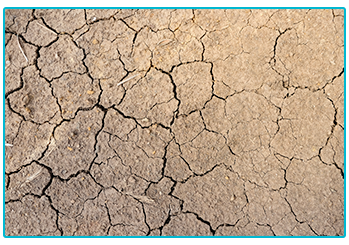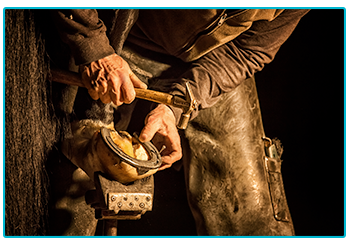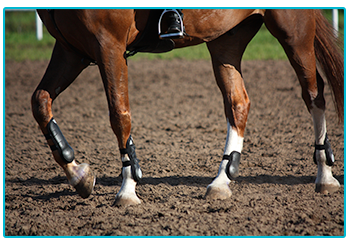Hot, dry summer conditions can lead to hard ground, which could be bad news for your horse. Our horses’ feet have become accustomed to softer ground due to factors like shoeing, so horses don’t cope as well on hard ground as they may have done in the past. On soft ground, a horse’s hoof will absorb any concussion throughout the structures of the foot. As the ground becomes hard, however, the foot can no longer absorb the increased concussion, which then travels up the leg. This, along with ruts and uneven surfaces, can lead to a variety of problems for your pony. That’s why we spoke to our horse health expert about how to keep your horse injury-free on hard ground!

The effects
Some horses will be affected by hard ground more than others, usually due to their conformation, which can vary between breeds and individuals. Horses with low heels and thin soles will feel the effects of harder ground more than those with upright feet. The effects of hard ground on horses’ limbs can include bruised feet, tendon injuries, splints, sore shins and laminitis, known as concussive laminitis. Find out more about how to prevent laminitis here!
Symptoms
If your horse is struggling with the harder ground, the easiest symptoms to spot are changes in their stride or jump. As there is no give in the ground, your equine friend’s stride may shorten, making them lose the spring in their step. Their jump may change from a high bascule to a lower, flatter jump, as the horse anticipates landing on harder ground. Some horses might even refuse to jump at all. These symptoms could also lead to muscle tension, due to your pony changing their natural movement.

Risk Management
On occasion, it can be okay to work your horse on hard ground, as long as measures are put in place to reduce the risk of injury. Make sure you’re aware of the ground you’re riding on; check for ruts and uneven areas before setting off so you know where to avoid. It’s also important to have a good farriery routine in place, ensuring your farrier addresses any foot balance problems that your horse may have. Protective boots, such as supportive exercise boots, can help safeguard against concussive forces. Avoid intensive work on hard ground, keep to a slower pace and avoid high impact activities like jumping.

Turnout
Horses can also be at risk of injury from hard ground whilst turned out, where we have less control over how they behave. A pair of turnout boots can help reduce the risk of injury, but ensure they can be worn during the warmer weather. Having plenty of food available in the field means your horse will spend more time eating than racing around, and protection from flies (such as fly sheets, fly masks and fly repellents) reduces the risk of them stamping their feet repeatedly. This could also stop them from becoming agitated and pacing about the field.
Hard ground isn’t ideal, but as long as precautions are put in place, injuries can be avoided. With these tips, you should be able to safely enjoy the warm weather with your equine friend! If your horse is showing any symptoms of the effects of hard ground, such as tendon injuries or laminitis, you should always speak to your vet for advice.
All content provided on this blog is for informational purposes only. We make no representations as to the accuracy or completeness of any information on this site or found by following any link on this site. We will not be liable for any errors or omissions in this information nor for the availability of this information. We will not be liable for any loss, injury or damage arising from the display or use of this information. This policy is subject to change at any time.


